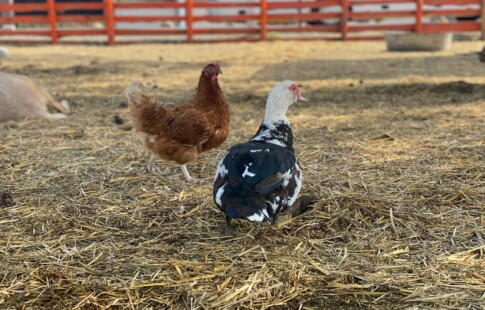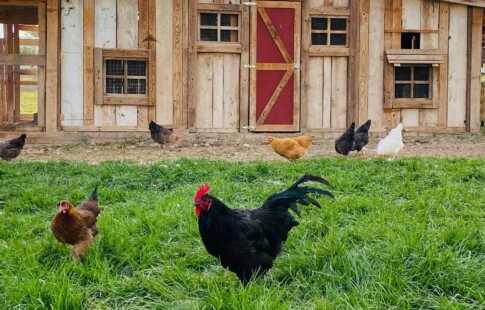
What is Ethical Eating?
We are reader-supported. When you buy through links on our site, we may earn affiliate commission.
Many diets are circulating the consumer market, which makes choosing the most sustainable option challenging. Many individuals recognize vegan and vegetarian consumption patterns as eco-conscious without assessing their carbon footprints. Environmentalists now look to ethical eating habits as a sustainable diet solution.
The agricultural industry significantly impacts the global ecosystem by causing atmospheric and surface-level pollution. It also adversely impacts the well-being of animals and food production workers. Consumers can minimize the negative effects by assessing ethical eating features and adopting the diet.
Defining Environmental Ethics
Many consumers adopt eco-conscious diets to protect the global ecosystem. Their consumption patterns correspond with their perceived conservation responsibilities. Individuals respond to environmental ethics by lowering the impacts of their diets.
Environmental ethics is a philosophical study regarding society’s obligation to protect biodiversity and ecosystems. Many individuals shift their perspectives from anthropocentric to ecocentric when studying the sector of psychology. They view nature as intrinsically valuable and recognize its importance to their existence.
Conscious diets can support environmental ethics by minimizing ecosystem disruption in the agricultural sector. Many consumers grow their own food to manage ecological effects. Other individuals adopt ethical eating habits to protect human and animal rights.
Other Stances to Consider When Adopting Ethical Eating
Agricultural workers play a significant part in ethical eating. Conscious consumers assess workers’ rights before purchasing different foods. Environmental Justice (EJ) comes into play when considering working conditions.
EJ assesses the sustainability regulations in a region and their effects on society’s health and well-being. One aspect of the agricultural industry interfering with EJ is pesticide uses. When field workers gain exposure to the substances, their risk for leukemia, lymphoma, multiple myeloma and sarcoma increase.
Many farmers are also minorities, which contributes to environmental racism. The disproportionate exposure to contaminants based on one’s ethnicity causes injustice. Conscious consumers often purchase goods without pesticides to ensure the health and well-being of agricultural workers.
Another impactful sector of psychology influencing consumers is animal ethics. The field of study explores the equitable relationship between humans and animals. It also views animals as sentient beings and vital components of the global ecosystem.
Many individuals abiding by the code of animal ethics only consume creatures when they naturally reach the end of their lives. Some also eat animals that died as a means of controlling their population size and local biodiversity. There are three main diets individuals adopt to protect the environment, workers and animals.
Low-Emission Diets
The first diet targets adverse ecological impacts. Low-emission eating habits consider the carbon footprint of each food product. Many individuals following the diet only consume foods that are in season.
Out-of-season produce generally have higher emissions because grocery stores export them from far away regions. Some consumers grow their own food to eliminate transportation emissions. Others also limit their consumption of red meat.
Cattle release methane, which significantly impacts the enhanced greenhouse effect. It is more potent than carbon dioxide and causes detrimental atmospheric impacts. Some individuals completely eliminate meat from their diets to improve environmental and animal protection.
Meat-less Diets
Meat-less diets abide by animal ethics. Consumers may replace animal-derived products with vegan alternatives to value creatures as sentient beings. Individuals eat beans, nuts, vegetables, fruits, grains and legumes when following a meat-less diet.
Some consumers continue eating products deriving from animals, like milk and eggs, while others completely cut them out. While gathering products from animals does not involve killing, it can cause them harm and pain. Other individuals eat ethically by consuming all foods without pesticides.
Organic Diets
Organic diets ensure the health and safety of agricultural employees by minimizing their exposure to toxins deriving from pesticides. Individuals also assess general working conditions before purchasing products from a supplier. They may assess the wages, manufacturing facility conditions and other health impacts to determine the ethics of food.
Organic consumption habits protect workers and the environment by minimizing toxic runoff. When pesticides reach the ocean, they deplete local oxygen levels and destroy habitats. After exploring the different diets, individuals may determine the most ethical eating habits.
Which Are the Most Ethical Eating Habits?
Consumers can minimize adverse impacts on biodiversity, natural resources and humanity by adopting a combination of all three diets. It is also essential to listen to your body when adopting restrictive diets. You should always put your health first, so you are well enough to contribute to animal, environmental and human rights projects.
Some individuals adopt flexitarian diets to maintain their well-being while minimizing adverse impacts. The consumption patterns mainly consist of meat-less alternatives, local vegetables, fruits and grains. Consumers add meat to their diet occasionally to access the necessary nutrients for health reasons.
Share on
Like what you read? Join other Environment.co readers!
Get the latest updates on our planet by subscribing to the Environment.co newsletter!
About the author
Jane Marsh
Starting from an early age, Jane Marsh loved all animals and became a budding environmentalist. Now, Jane works as the Editor-in-Chief of Environment.co where she covers topics related to climate policy, renewable energy, the food industry, and more.





